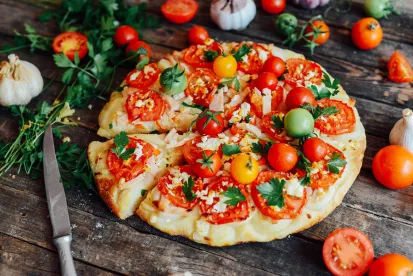Restaurant fortunes are often attributable to just one or two signature dishes, and recipe ownership dilemmas can arise in restaurants of all sizes. Recent examples include a joint venture gone awry, resulting in a war over the ownership of a salted caramel brownie recipe; the “Taco Bible” that a former employee allegedly stole and used at another taco restaurant nearby; and a well-known Australian chef demanding that his former employer cease serving the signature dish he created when he worked there.
The outcomes of these and similar cases are varied and turn largely on whether the party asserting ownership of a recipe can demonstrate: (1) that the recipe has “trade secret” status; and (2) the terms of the employment relationship. Well-drafted restrictive covenants and employment agreements are useful in resolving both of these issues.
The various intellectual property rights, such as trademarks, copyrights, and patents, are not as well-suited to protect recipes as the doctrine of trade secrets. Unlike trademarks, which protect recognizable designs (e.g., the word “Cronut,” rather than the recipe for a Cronut), trade secrets protect any information, so long as (1) the owner takes reasonable steps to keep the information secret, and (2) some independent economic value is derived from the information. Further, Patents expire after 20 years, and in any case, require the inventor to publish every step of his or her creation. 35 U.S.C. §§ 122, 154 (2013); 37 C.F.R. §§ 1.211-1.221 (2015). According to a seminal 1933 Supreme Court case, trade secrets, on the other hand, may retain their status into perpetuity. . . so long as they remain trade secrets.
How to Protect Your Restaurant’s Trade Secrets
The federal government, and almost every state (with New York and Massachusetts being the notable exceptions), have codified common law trade secret principles. These laws offer relief for the attempted or actual misappropriated of trade secrets. But availing oneself of trade secret protection requires, by definition, that one make an effort to keep the relevant information confidential. Thus, restaurant owners need to protect the confidential nature of the recipes they wish to safeguard—otherwise those recipes will be trade secrets no longer. This effort requires more than merely marking “confidential” on each copy of a recipe distributed to employees. Access to trade secrets should be carefully limited only to those who truly need to know the information. Similarly, to avoid diluting the value of what a restaurant owner truly deems to be a trade secret, it is important to avoid marking even those documents that are not truly confidential as such.
What Else Can Restaurants Do to Protect Their Recipes?
The best time to resolve recipe ownership disputes is before they arise. One way to accomplish this, and strengthen a recipe’s trade secret status in the process, is to enter into restrictive covenants with certain key employees and suppliers at the outset of the employment or vendor relationship. A well-drafted non-disclosure agreement, for example, would clearly define any trade secret or other confidential information that the restaurant wants to protect – including recipes The agreement should outline the manner in which the employee or vendor is required to handle the trade secret, specifically including the employee’s post-employment obligations to return all confidential materials (including recipes) to which the employee or vendor may have had access. And because trade secret protection ceases once the trade secret is no longer confidential, it is important to ensure that a restrictive covenant’s confidentiality obligations, which generally expire after a finite period of time, include a carve out for trade secrets, the confidential nature of which may continue for so long as the trade secret remains as such.
Additionally, an employment agreement that a restaurant enters into with a chef or others who have access to the confidential information at the commencement of the employment relationship could provide for the restaurant’s ownership of all intellectual property (and therefore, all recipes) that the chef and others create for the duration of the employment relationship. The employment agreement might also include non-competition and non-solicitation clauses to preclude departing employees from improperly taking business or poaching top talent.
Taking reasonable precautions to ensure that signature recipes are trade secrets, implementing restrictive covenants, and including specific terms in employment contracts, can be the not-so-secret recipe for protecting a restaurant’s intellectual property.




 />i
/>i
